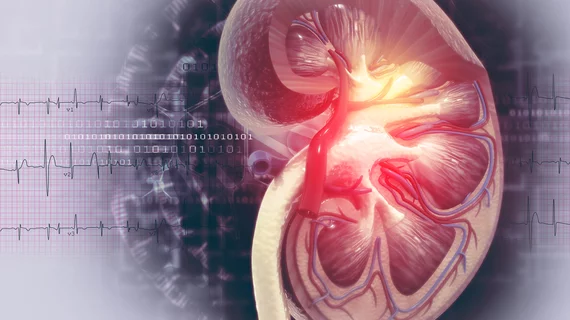AI assists with kidney transplant follow-through
Researchers have used deep learning to predict success, failure or complications in transplanted kidneys by analyzing pathology slides at scale.
The team suggests its advance stands to improve post-transplant prognostics and extend precision care to allograft medicine.
The Lancet Digital Health published the research report Nov. 15.
Lead author Jesper Kers, PhD, of the University of Amsterdam, senior author Peter Boor, PhD, of Aachen University Hospital in Germany and colleagues trained convolutional neural networks on close to 6,000 digital slide images acquired in allograft biopsies from almost 2,000 patients.
Validating the technique on slides from 1,847 patients as well as a real-world cohort of 101 patients, the team found good accuracy in classifying tissue as normal, rejected or susceptible to other diseases.
While the study used retrospective data and was conducted to prove its concept, Kers and co-authors state that prospective trials will be best carried out after allograft scientists see the usefulness of AI-based diagnostic support, as well as its potential pitfalls.
“This study showed that deep learning-based classification of transplant biopsies could support pathological diagnostics of kidney allograft rejection,” the authors conclude. “[O]ur findings suggest the feasibility of using convolutional neural networks for automated and reproducible preclassification of kidney allograft biopsies, potentially augmenting allograft biopsy diagnostics by computer–human interaction.”
In their discussion section, Kers et al. underscore that the current performance of their AI models is “not sufficient to replace human pathologists.”
A histological report contains much more information than the pure diagnostic class. Instead of replacing human pathologists, we argue that these models have the potential to improve pathologists' performance; e.g., by using visualization techniques, in the sense of augmented intelligence and improved digital pathology workflows, but this remains to be evaluated.”
The study is available in full for free.

